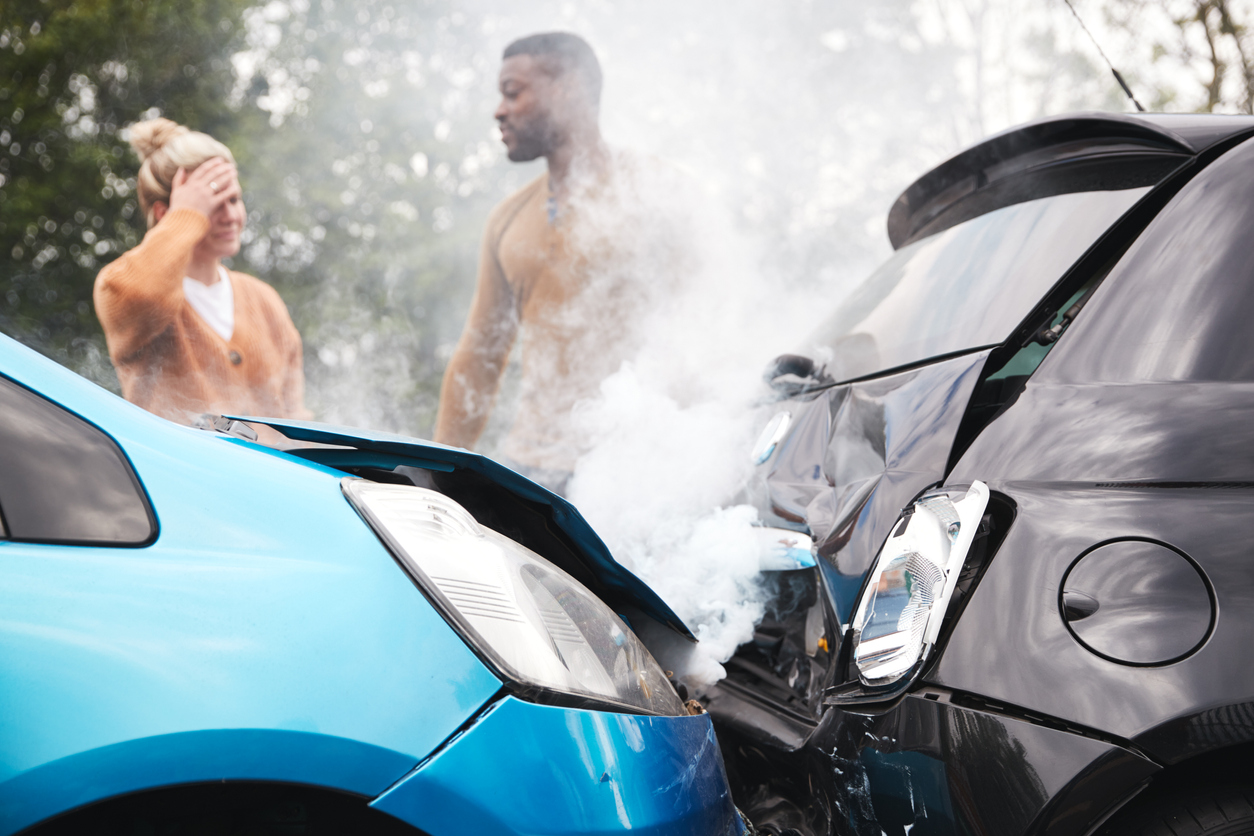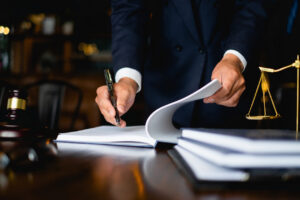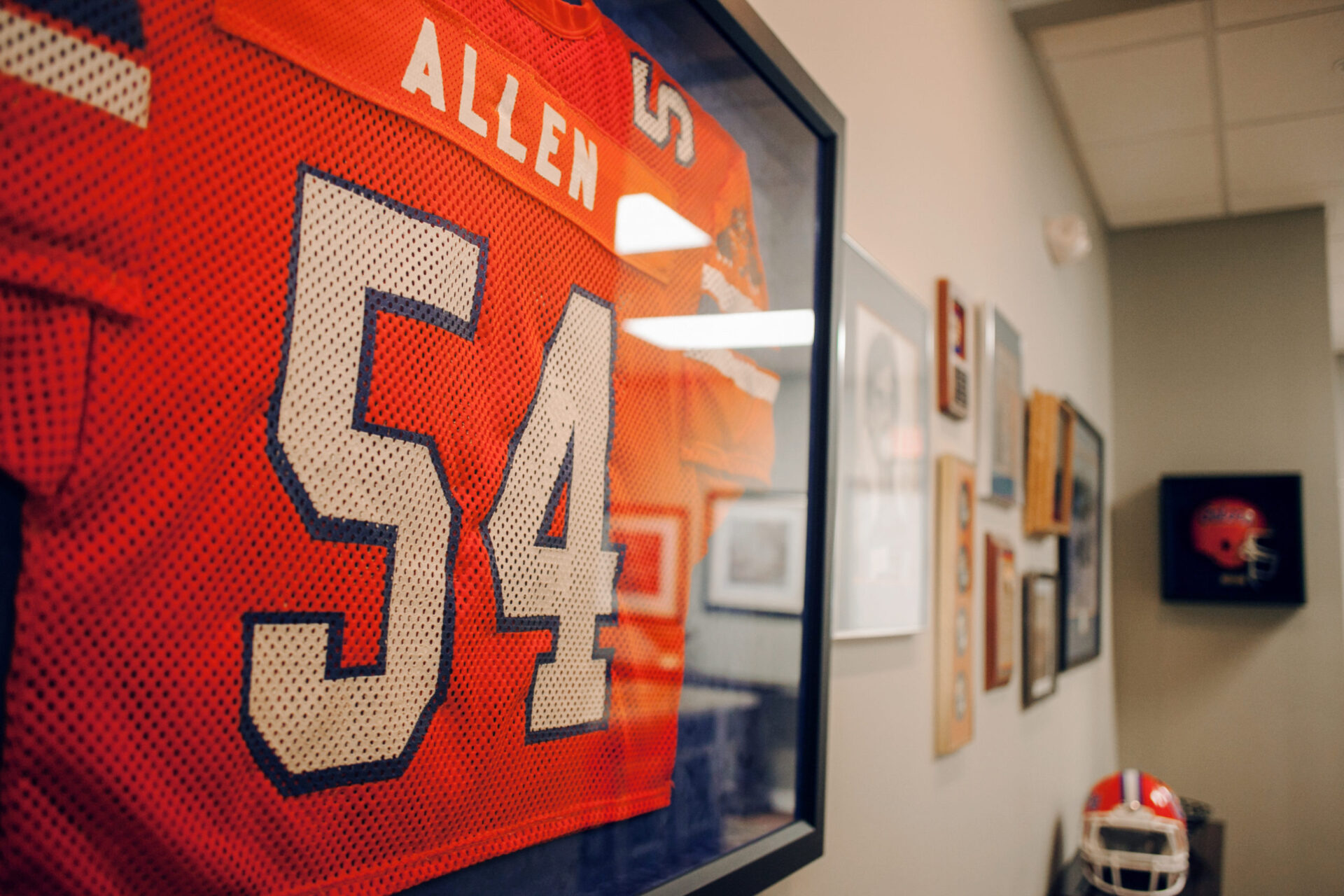What Happens If You are at Fault in a Car Accident in Florida?
Bill Allen | February 8, 2021 | Car Accident Lawyer Near Gainesville Florida

No one plans to be in a car accident. However, car crashes occur every day throughout Florida. If you are involved in a car wreck, try not to panic.
Remain at the accident scene and call 911 to report the crash. You are required by law to exchange information with the other driver. Do not discuss the accident with anyone other than a police officer and your car accident lawyer.
Avoid admitting fault for the car accident, even if you believe you might have contributed to the cause of the collision. Even though Florida is a no-fault insurance state for car crashes, you could be financially liable for damages in some cases.
Who is Liable for Car Accident Damages in Florida?

Florida requires that drivers purchase a minimum amount of Personal Injury Protection (PIP) insurance coverage. The minimum coverage required by Florida law is $10,000. PIP is a no-fault insurance policy. If you are injured in a car accident, you must seek medical treatment within 14 days from the date of the crash.
PIP insurance pays up to 80 percent of your medical expenses related to your injuries. It may also pay up to 60 percent of your lost income. However, some requirements must be met, and your benefits are limited to your policy terms.
Is Florida a no-fault State? The advantage of having a no-fault insurance system is that you can receive benefits quickly, and you do not need to prove fault to receive your benefits. Each driver and accident victim files a claim with the PIP insurance company that provides their coverage.
However, PIP coverage does not compensate you for all damages caused by a car accident. Florida allows accident victims to sue at-fault drivers for additional damages if they meet the serious injury threshold.
Why Do I Need to Be Concerned About the Serious Injury Threshold?

If you are at fault for a car wreck, you can be sued for damages if the victim sustained permanent disabilities, significant scarring or disfigurement, loss of a body function or someone died. The definition of a serious injury is found in the Florida Statutes.
An example of a serious injury that might meet the threshold for a personal injury lawsuit might include traumatic brain damage, paralysis, amputation, or loss of kidney function. When an accident victim sustains an injury that meets the serious injury threshold, the person may sue the at-fault driver for damages such as:
- Full loss of income and benefits
- Decreases in earning capacity because of a permanent impairment
- Medical bills and expenses, including therapy costs, in-home health care, and long-term personal care
- Loss of quality of life or enjoyment of life
- Physical pain and suffering
- Emotional distress and mental anguish
- Disabilities, scarring, permanent impairments, and disfigurement
- Travel costs to and from medical appointments
- Modifications to homes and vehicles because of disabilities
The types of damages and the value of the personal injury claim depend on numerous factors. The severity and type of injury, total financial losses, and allegations of comparative fault can impact the injury claim’s value.
Who is Responsible for Paying the Personal Injury Claim?

If you do not have liability car insurance, you are personally liable for the damages caused by the car accident. Your wages could be garnished or your property could be seized to pay the personal injury judgment in some cases.
Because car accidents happen, it can be wise to purchase liability car insurance. Liability insurance compensates accident victims for injuries and damages when you cause a car wreck. The accident victim must prove that you were responsible for causing the collision and that they sustained injuries and damages because of the car accident.
Liability insurance companies generally retain attorneys to respond to personal injury lawsuits when their insureds are sued. That does not mean you should not consult with a car accident attorney of your choosing. You need to understand your legal rights and your potential liability for the car accident claim.
How Can I Protect Myself After a Florida Car Accident?

Call 911 to report the crash and remain at the scene. Do not discuss the accident or say you are sorry for the crash. If anyone witnessed the car accident, make sure to get that person’s name and contact information.
If it is safe to do so, take pictures and make a video of the accident scene. Make sure to capture the position of the vehicles, the damage to each vehicle, the roadway, and the surrounding area. As soon as possible, seek medical treatment for your injuries and consult with a personal injury lawyer.
Even though Florida does not require liability insurance coverage for car accidents, consider purchasing a liability insurance policy. Discuss the coverage options with an insurance agent and consider purchasing the highest amount of insurance your budget permits.
Contact Our Car Accident Law Firm in North Central Florida

If you need legal assistance, contact the Ocala car accident lawyers at Allen Law Accident & Injury Lawyers at your nearest location to schedule a free consultation today.
We have two convenient locations in North Central Florida:
Allen Law Accident & Injury Lawyers – Gainesville office
2550 SW 76th St #150
Gainesville, FL 32608
(877) 255-3652
Allen Law Accident & Injury Lawyers – Ocala Office
112 S Pine Ave
Ocala, FL 34471
(352) 351-3258
What Our Clients Say About Us

https://goo.gl/maps/xioXZHf3VCMBFAJE7
Read more of our client reviews here.
